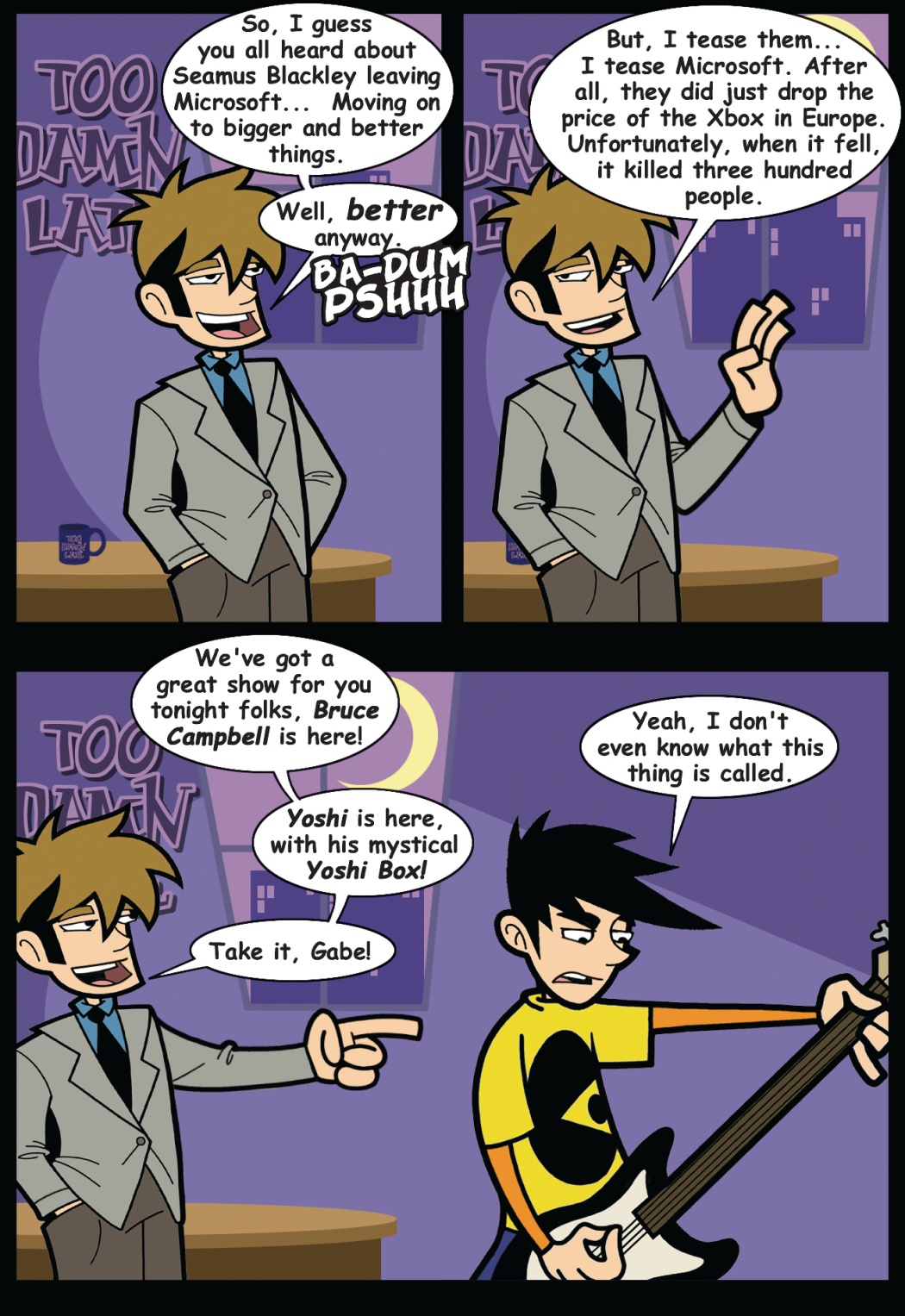Like any other "interactive experience" from thatgamecompany, it doesn't take a long time to "consume" Journey. This sort of thing used to bother me a lot. I think it's valid to assess how much entertainment you get out of something per dollar, but if it's the only metric it privileges a very specific type of genetic in our discourse. Dear Esther might be a "bad investment" on this classic and utterly pragmatic axis, but it must exist. And we can ensure that it does exist, by being the kind of ecosystem out of the way ideas can grow in.
Gabriel experienced Journey in what was possibly the most optimal way: as he's more or less sworn off previews or trailers except in those cases of maximum interest, he's often in a position to be surprised. The biggest surprise possible is that another conscious being will appear out of nowhere, or if not the biggest, certainly it ranks high. This happened to him, and kept happening, because this is how the game was designed. The experience was (and is) so positive, especially in the final act, that I wonder if every person shouldn't have been given this opportunity: to have never mentioned the multiplayer at all. Similar to Demon's/Dark Souls, the texture of the game is informed by these interlopers, whether their participation is active or ambient.
The game is allowed to retain its mysticism because it limits the ways you can interrupt another person's experience. All you can really do to communicate is "chirp" at each other; I endeavored to create a cadence unique to myself. I was sitting down on a ruin at one point, wondering what that cleft was in the distance, when somebody decided that the thing to do was to run around me and tweetle, then move a little bit in the direction they wanted me to, then come back and do a couple more laps. I sent Gabe a text. Was he playing Journey right now? He said no, but I don't believe him.
Anything I tell you will be something you can't have unsullied, so I'm just going to let you get to it. Journey is sweet, though. Not "sweet" like a killer wave, or a red bean humbow. It has sentiment without being saccharine. To say that its an "instrumental" seems like a good way of putting it; a single word anywhere in the body of the work would have rendered the whole thing toxic and false.
(CW)TB out.
